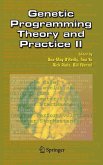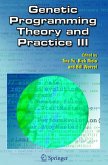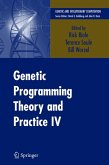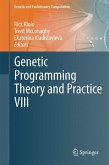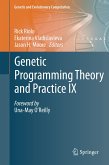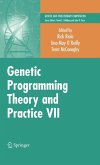This book presents a variant of Genetic Programming that evolves imperative computer programs as linear sequences of instructions, in contrast to the more traditional functional expressions or syntax trees. It is one of the few books that deals solely with Linear GP and contains many concrete, experimental results. The book serves as a reference for researchers, but also contains sufficient introduction for students and those who are new to the field.
Dieser Download kann aus rechtlichen Gründen nur mit Rechnungsadresse in A, B, BG, CY, CZ, D, DK, EW, E, FIN, F, GR, HR, H, IRL, I, LT, L, LR, M, NL, PL, P, R, S, SLO, SK ausgeliefert werden.



